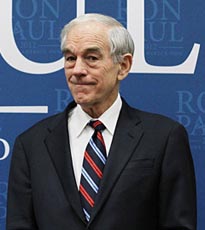 Kenneth Feinberg is an interesting figure. Conceptually, anyway. After the BP Gulf oil spill, the Federal government negotiated creation of a payout fund and President Obama appointed Feinberg to assign the compensation due to each disaster victim based on losses and projections. Feinberg had done the same for victims' families after 9/11 and the 2007 Virginia Tech massacre, and, prior to that, he participated in Agent Orange-related litigation.
Kenneth Feinberg is an interesting figure. Conceptually, anyway. After the BP Gulf oil spill, the Federal government negotiated creation of a payout fund and President Obama appointed Feinberg to assign the compensation due to each disaster victim based on losses and projections. Feinberg had done the same for victims' families after 9/11 and the 2007 Virginia Tech massacre, and, prior to that, he participated in Agent Orange-related litigation.After the oil spill, I watched him testify on CSPAN at a series of Federal oversight committee hearings about the payout fund's administration. He is an animated performer, and his unrehearsed answers to panel inquiries were a clinic in articulation. I was thinking of him today and found an article from the Washingtonian, March 01, 2008, called "What I've Learned: Kenneth Feinberg". It's an interview, and features this:
Interviewer: Is it hard to shed the role of lawyer?
Feinberg: I think being a lawyer and administering the 9/11 fund was at best a wash—and actually may have been a hindrance. It’s been said that perhaps a better qualification to do what I did with 9/11 and Virginia Tech is divinity school rather than law school. You certainly become more of a psychologist and a rabbi or a priest than a lawyer. It has made me a better listener.Neat answer because (1) we can consider how his administration would have looked and sounded under other value systems and power matrices (medical/psychological or spiritual as opposed to lawful justice); (2) he stresses listening as essential, rather than previous experience, wisdom, or disinterest, for example. But I wonder if he is distancing himself from these points by starting off with "It’s been said "?
Might add to the reading list his book What is Life Worth?: The Unprecedented Effort to Compensate the Victims of 9/11.













